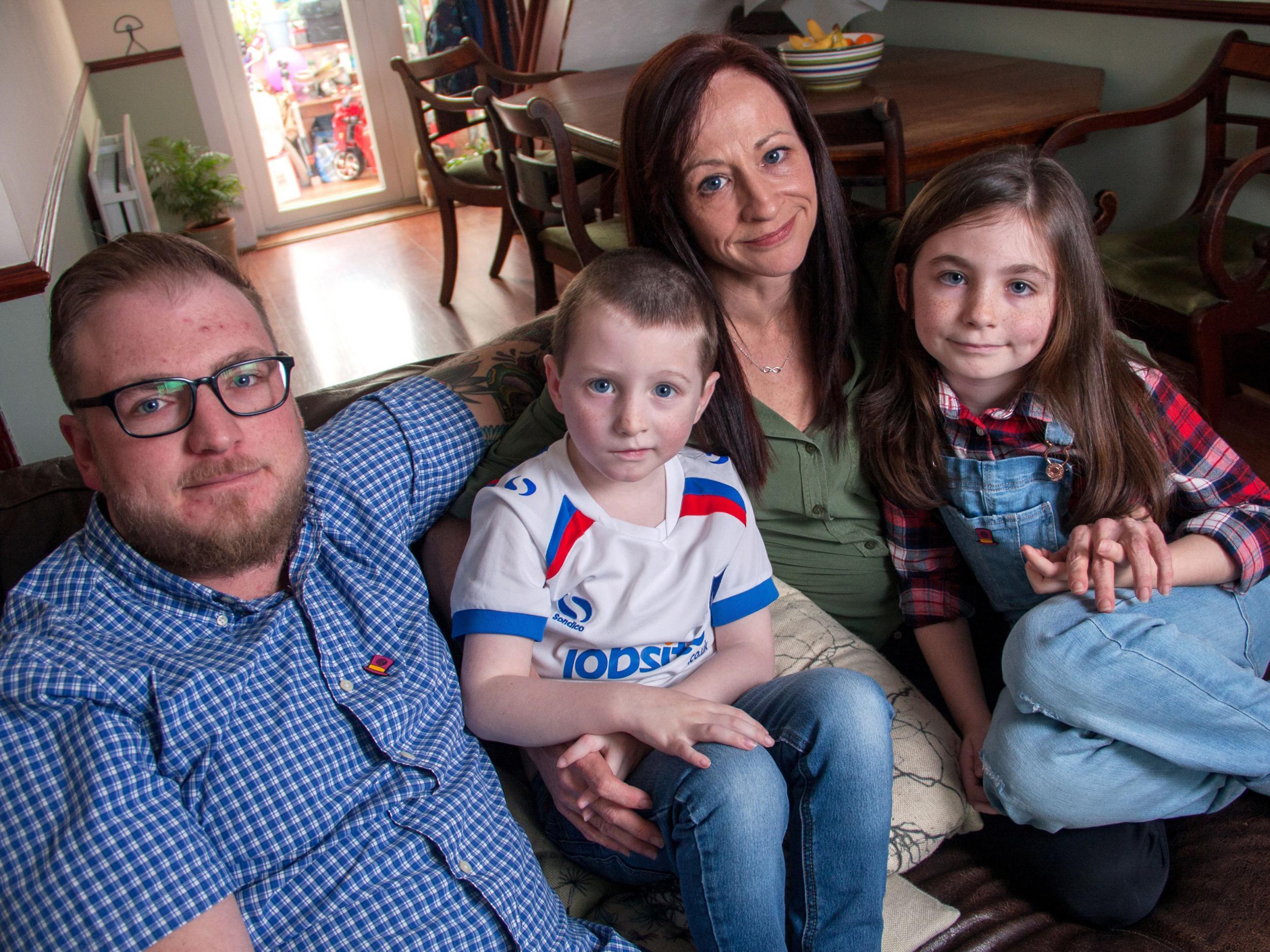Boy suffering from brain tumour must stay away from home for treatment due to lack of specialists, family says
'I am angry to think that Harry will have to live away from the security and comfort of his own home', says Fiona Lear

Your support helps us to tell the story
From reproductive rights to climate change to Big Tech, The Independent is on the ground when the story is developing. Whether it's investigating the financials of Elon Musk's pro-Trump PAC or producing our latest documentary, 'The A Word', which shines a light on the American women fighting for reproductive rights, we know how important it is to parse out the facts from the messaging.
At such a critical moment in US history, we need reporters on the ground. Your donation allows us to keep sending journalists to speak to both sides of the story.
The Independent is trusted by Americans across the entire political spectrum. And unlike many other quality news outlets, we choose not to lock Americans out of our reporting and analysis with paywalls. We believe quality journalism should be available to everyone, paid for by those who can afford it.
Your support makes all the difference.The mother of a six-year-old boy diagnosed with a potentially lethal brain tumour has spoken of her anger that he will have to travel to London for radiotherapy because of a lack of specialists near his home in Hampshire.
Fiona Lear said she was frustrated that that her boy Harry St Ledger "will have to live away from the security and comfort of his own home during treatment as being able to sleep in his own bed and have his own things around him every night would be such a comfort."
The pair will stay at the University College Hospital for five days a week over six weeks as he undergoes treatment.
He has a very rare type of tumour similar to a diffuse intrinsic pontine glioma (DIPG) which has “an unbearably stark prognosis and very limited treatment options”, according to the charity Brain Tumour Research, which is supporting him.
Dressed as Spiderman Harry from Portchester, Hampshire will wear a radiotherapy mask decorated with the features of his favourite superhero later this week.
"This may well be the only treatment option open for us and we know that not all children respond," said Ms Lear.
The 46-year-old added: “After that the pathway is, sadly, one of rapid deterioration and the average survival time after diagnosis is just nine to 12 months. At this stage we cannot begin to think what may lie ahead if this doesn’t work.”
Harry, known to his family as Harryboy, was diagnosed last week after being struck down by an ear infection early in the New Year.
He was originally treated at Queen Alexandra Hospital in Portsmouth and then at Southampton General Hospital, but his radiotherapy will have to take place in London and the family say this is because of a shortage or radiographers locally.
His mother said the stay away from home will be hard for Harry because he has autistic spectrum disorder and finds it hard to communicate with others.
“I am frightened to think of what lies ahead, of what effect the radiotherapy will have on him, of how he will feel dreadfully sick yet extremely hungry due to the steroids which he must take to control the swelling in his brain," she said.
A spokesman for University Hospital Southampton NHS Foundation Trust said: “While we have no shortage of therapy radiographers in our oncology service, our paediatric clinical oncologist has sadly moved to a new hospital.
“We are therefore in discussion with colleagues at University College London Hospitals NHS Foundation Trust about the future organisation of this service.
“In the short term, the very small number of children who require radiotherapy will be receiving this treatment at University College Hospital. However, the remainder of their care is delivered with us in Southampton.”
Brain tumours such as the one with Harry has been diagnosed with are the biggest cancer killer of children.
Harry is being supported by national charity Brain Tumour Research which funds a network of centres of excellence, including its flagship at the University of Portsmouth where scientists are working on improving treatment options and on finding a cure for the disease.
The charity’s research manager, Katie Sheen, said: “DIPG is a specific type of brainstem glioma which usually occurs in children between five and seven, it makes up 15 per cent of all brain tumours in young children.
“The cells infiltrate the surrounding nerves and are very difficult to remove surgically therefore the treatment that is available is limited. The standard treatment is radiotherapy which can improve symptoms in the short-term.”
She added that brain tumours were indiscriminate and could affect all ages.
“Brain tumours kill more children and adults under the age of 40 than any other cancer, yet just 1 per cent of the national spend on cancer research has been allocated to this devastating disease," she said.
Ms Lear added: “I am shocked to learn that brain tumours are the biggest cancer killer of children and adults under the age of 40, yet so many people still think it is leukaemia which is killing more of our precious children than any other form of this hideous disease.”
Harry and his businessman father Cairan St Ledger, 31, who runs HSL Outdoor Cleaning, are avid Portsmouth FC fans and season ticket holders.
The family said they have had “wonderful” support from the club with a home visit from Harry’s favourite players Conor Chaplin and Kal Naismith.
They are documenting his story on their Facebook page Helping Harry’s Journey.
Press Association
Join our commenting forum
Join thought-provoking conversations, follow other Independent readers and see their replies
Comments